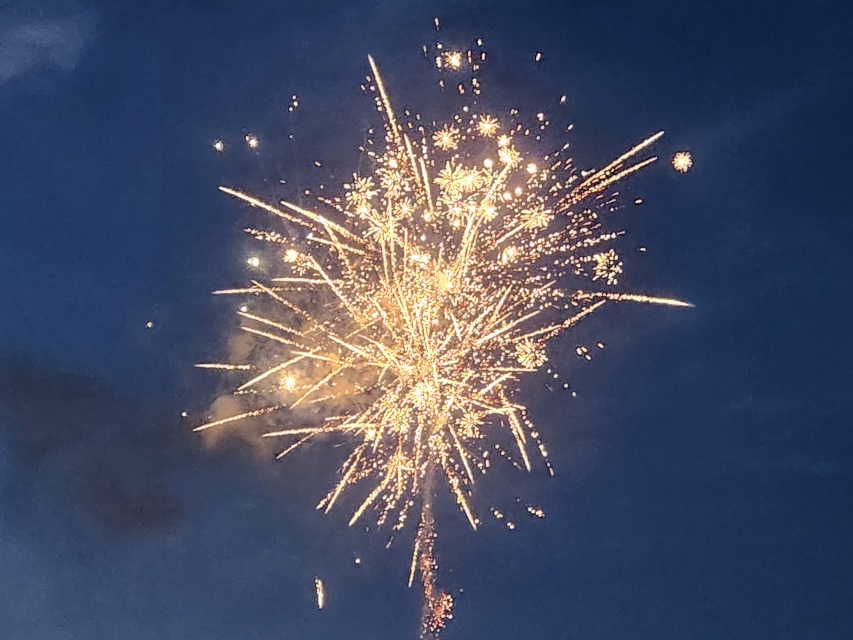Post-Holiday Blues
With the passing of the holiday season, chances are good that you will experience an emotional “let down” or “post-holiday blues”. For most people these “blues” will pass fairly quickly, for example, a few hours or a few days. For others, “the blues” may last a bit longer, from a few days to a couple of weeks to a couple of months.
You may be someone who scoffs at the idea of post-holiday blues! This may be because you love the holidays and traditions. It could be you don’t experience any symptoms of the blues until you return to work after New Year’s Day. Most people still see the week between Christmas and New Years as an extension of Christmas. They take it as an excuse to continue indulgences from before the holiday. The return to a routine is what triggers the post-holiday blues.
Please note, I have deliberately NOT included a New Year’s Resolution on this list of ways to conquer the post-holiday blues! Making plans to do something you really don’t feel committed to accomplishing is NOT going to help your post-holiday mood!!!
Characteristics of Post-Holiday Blues
Post-holiday blues share many characteristics of anxiety and/or depression. The difference with post-holiday blues is that the symptoms are usually short-lived and pass without much of an intervention. Symptoms of post-holiday blues vary, but typically include some or all of the following:
- Insomnia, or sleeping more than normal for you
- Fatigue
- Low energy
- Loss of interest in eating, or over indulging
- Irritability
- Difficulty concentrating
- Uncharacteristically turning to caffeine, alcohol or other drugs to alter your mood
- Feeling jittery or anxious
Conquering the Post-Holiday Blues
- Expect a let-down. Let-downs can occur after any period of time in which there is a change of routine. Think about how it feels to go back to school after summer vacation. Many symptoms of the holiday blues occur during the first few hours, days or weeks of returning to school. For most children these symptoms subside as routine is reestablished.
- Don’t pack away your holiday decorations so quickly! Maybe you don’t have to take your Christmas tree down on Christmas Day. If you have a real Christmas tree and it is getting dried out, maybe you could replace it with a smaller artificial tree for another week or so.
The same goes for other holidays. Do the Halloween decorations have to go away November 1st? Do the Valentine decorations have to be gone on February 15th? Leaving decorations up for a few days after the event might extend the spirit of the holiday for you.
- Think more about seasons than events. Salem, Massachusetts is an example of this. Salem promotes having 5 seasons: winter, spring, summer, fall & “Haunted Happenings” for all of October. In early October there is a kick off parade, fair, and a costume ball throughout the month, and fireworks over Salem Harbor on Halloween.
- Focus on taking care of what you put into your body. Getting out of a routine frequently includes “grazing” on empty-calorie celebratory foods as opposed to eating three meals a day, indulging in high calorie foods, and washing it all down with drinks like spiked eggnog or other alcohol. Returning as quickly as possible to a routine of healthy eating will do wonders for your mood.
- Practice resilience. Resilience is the ability to bounce back from adversity (stress from the holidays). By learning how to boost your resilience through the life cycle (childhood, adulthood and in aging), you can decrease your risk of experiencing post-holiday blues. To read more about resilience, please read my article 30 Ways to Boost Your Resilience.
- Relive positive memories. For some people who experience post-holiday blues, reliving positive memories from a holiday go a long way to elevating their mood. For example, working on a photo album or scrapbooking can help to relive the positive memories. For some people, reliving positive memories can be posting on social media.
- Get moving. Bundle up and go outside! Getting outside in the cool fresh air can do wonders for improving mood. If it is too cold to be outside, why not walk inside a mall? The idea is to get activity, to get your blood pumping! Or if you prefer, you might try a relaxation program, meditation or even yoga.
- Look to the future. Not dwelling on what has passed is important to decreasing post-holiday blues. Develop your “bucket list” of things you would someday like to experience. Start planning your next vacation or start planning what you will plant in the garden next summer.
Take advantage of after-holiday sales to stock up on paper goods, decorations, cards, or even gifts for next year. Every month throughout the year buy a $25.00 (or whatever you can afford) gift certificate from somewhere. When Christmas, Hanukah or even birthdays roll around, you will be prepared!
- Read Crush Your Stress: 302 Coping Skills for Managing Your Stress. Sometimes learning new coping skills can help you with identifying and preventing stress. One of the 302 coping skills in Crush Your Stress is making a “stress management kit”. To learn more about how a stress management kit can provide you with the support you need, check out this book. Crush Your Stress: 302 Coping Skills for Managing Your Stress
I am sorry for this shameless plug of my book, but I truly believe in its value to help alleviate stress!
- Seek professional help. Sometimes post-holiday blues are really something else. Some people suffer from SAD or “seasonal affective disorder”. NIMH SAD is related to not getting enough vitamin D due to decreased sunlight in the winter. Holiday stress can also bring clinical depression or anxiety to the surface. If nothing seems to elevate your mood after a return to your routine, consider seeking professional help.
Relationships Relearned: Learn. Unlearn. Relearn
To be in a healthy, successful relationship, what you learned in childhood about relationships may need to be unlearned and relearned in a different way as an adult.
In childhood, you may have learned how the holidays should be, or have always been. This is called “tradition”. This can be part of the holiday blues. Holiday blues can occur if something interferes with your tradition. As you watched how your parents handled these disruptions, you will have learned how to handle these type of situations, too.
The good news about behavior is that it is all learned. Any behavior that has been learned can be unlearned and relearned in a different way.
If you are able to view a holiday as a season as opposed to a specific singular day, perhaps you can begin to unlearn the habits and thoughts associated with the let-down after the singular holiday.
By being resilient and anticipating the things you dread about holidays, perhaps you can develop a plan that can eliminate or at least reduce your holiday stress.
Take Away Point
You don’t have to feel stressed and overwhelmed about the holiday season. You have choices on how to do things differently. Now go take charge of your post-holiday blues!
With warmest regards,
Thank you so much for reading this blog. If you enjoyed the content, please check out other blogs at:
https://relationshipsrelearned.com/my-blog/
https://rvingnomads.com/blog/
In addition to blogs and articles, I have written a series of self-help books. To view these books, please go to my Amazon Authors Page or go to the My Self-Help Books tab at the top of this page.
To be notified of future posts, please enter your email address and click on the Subscribe button.
| AI has not been used to create any content for my website, articles, blogs or books. All material is original unless otherwise noted. All photos and graphics within my website and blogs were taken or created by David Harrington or Kathryn Maietta. |










